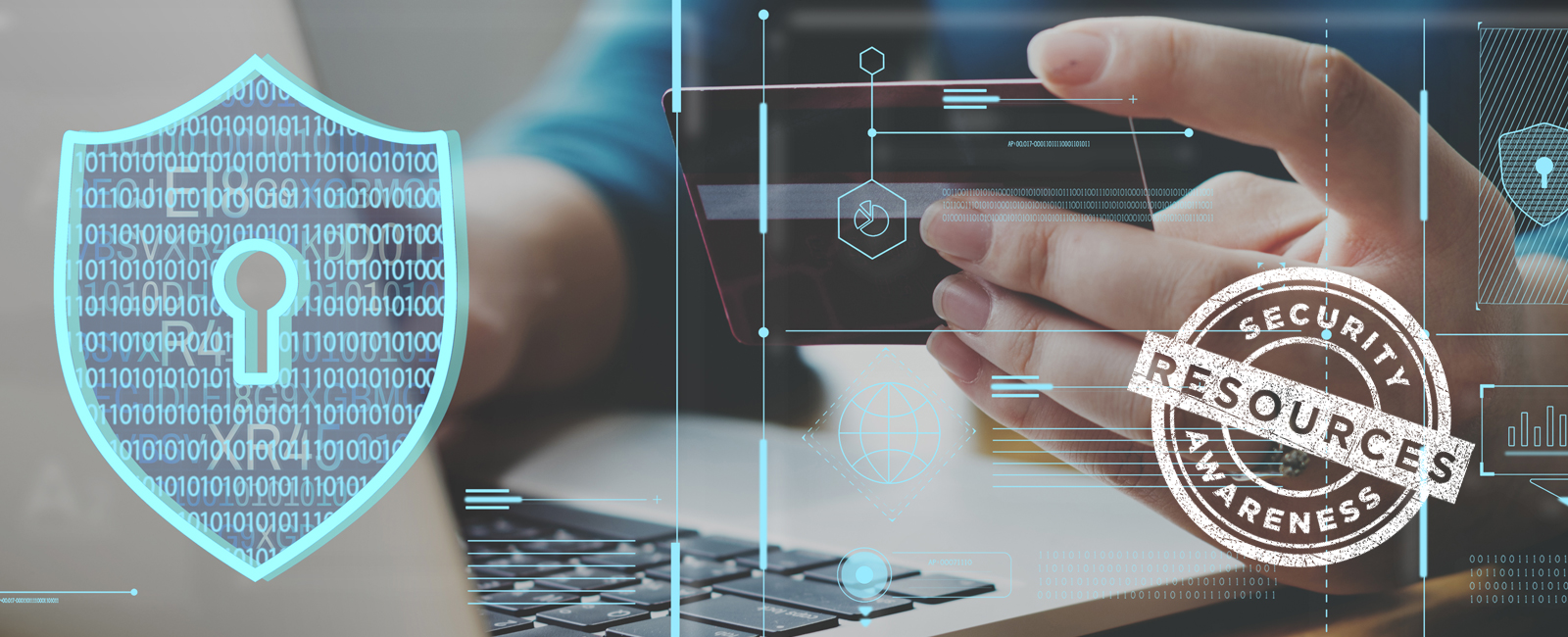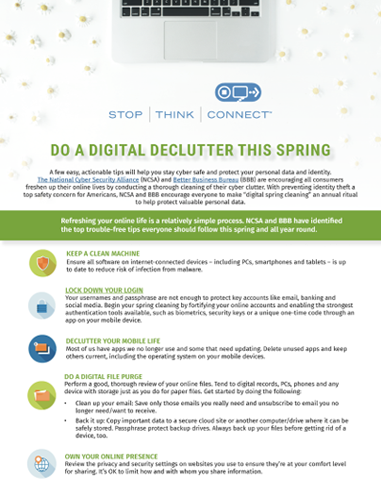Protecting one's identity needs to be a part of everybody's practices and habits of mind. The twelve Security Awareness blogs feature ready-made content designed to enhance security awareness.

Campus Security Awareness Campaign 2019
This post is part of a larger campaign designed to support security professionals and IT communicators as they develop or enhance their security awareness plans. The campaign is brought to you by the Awareness and Training Working Group of the EDUCAUSE Higher Education Information Security Council (HEISC). View the other monthly blog posts with ready-made content at the security awareness resource page.
The first full week of March is National Consumer Protection Week. The week is designed to help people make good financial decisions and understand their rights as consumers. Understanding your rights as a consumer can help you recover from identity theft.
Get the Word Out
Newsletter or Website Content
Identity theft has become a fact of life during the past decade. If you are reading this, it is a safe bet that your data has been breached in at least one incident. Does that mean we are all helpless? Thankfully, no. There is a lot we can do to protect ourselves from identity theft and to make recovery from cyber incidents quicker and less painful.
First, take control of your credit reports. Examine your own report at each of the "big three" bureaus. You get one free report from each credit bureau once per year. You can request them by going to AnnualCreditReport.com. Make sure there's nothing inaccurate in those reports, and file for correction if needed. Then initiate a credit freeze at each of those plus two other smaller ones. Instructions can be found at Krebs on Security. To keep an eye on your credit report all year, space out your credit bureau requests by requesting a report from a different credit bureau every four months.
Next, practice good digital hygiene. Just as you lock your front door when you leave home and your car when you park it, make sure your digital world is secured. This means:
- Keep your operating system up to date. When OS updates are released, they fix errors in the code that could let the bad guys in.
- Do the same for the application software you use. Web browsers, plug-ins, email clients, office software, antivirus/antimalware, and every other type of software has flaws. When those flaws are fixed, you are in a race to install that fix before someone uses the flaw against you. The vast majority of hacks leverage vulnerabilities that have a fix already available.
- Engage your brain. Think before you click. Think before you disclose personal information in a web form or over the phone.
- Think before you share on social media sites. Some of those fun-to-share-with-your-friends quizzes and games ask questions that have a disturbing similarity to "security questions" that can be used to recover your account. Do you want the answers to your security questions to be published to the world?
- Use a password manager and keep a strong, unique password for every site or service you use. That way a breach on one site won't open you up to fraud at other sites.
- Back. It. Up. What do you do if you are hit with a ransomware attack? (Or a run-of-the-mill disk failure?) If you have a recent off-line backup, your data are safe, and you can recover without even thinking about paying a ransom.
- Full disk encryption is your friend. If your device is stolen, it will be a lot harder for a thief to access your data, which means you can sleep at night.
- Check all your accounts statements regularly. Paperless statements are convenient in the digital age. But it is easy to forget to check infrequently used accounts such as a health savings account. Make a recurring calendar reminder to check every account for activity that you don't recognize.
- Manage those old-style paper statements. Don't just throw them in the trash or the recycle bin. Shred them with a cross-cut shredder. Or burn them. Or do both. Data stolen from a dumpster are just as useful as data stolen from a website.
If you've been a victim of identity theft:
- Create an Identity Theft Report by filing a complaint with the Federal Trade Commission online (or call 1-877-438-4338).
- Use the Identity Theft Report to file a police report. Make sure you keep a copy of the police report in a safe place.
- Flag your credit reports by contacting the fraud departments of any one of the three major credit bureaus: Equifax (800-685-1111); TransUnion (888-909-8872); or Experian (888-397-3742).
Social Posts
- Be discreet about what you tweet! Don't overshare personal info. #IdentityTheft #CyberAware
- Legitimate businesses will never ask for your account password or SSN. #IdentityTheft #CyberAware
- Free #WiFi hotspots can be dangerous. Avoid financial transactions while connected. #IdentityTheft #CyberAware
- Review monthly financial statements and shred outdated documents before throwing them away. #IdentityTheft #CyberAware
- Check your credit report annually! Request free reports here: https://www.annualcreditreport.com/index.action. #IdentityTheft #CyberAware
- Don't become a victim! Stay safe from #cybercrime and avoid these tax-season tricks: [https://staysafeonline.org/resource/cybersecurity-tips-online-tax-time/] #IdentityTheft #CyberAware
Email Signature
Ask staff members to add a tip to their email signature block and link to your institution's information security page.
Example:
Jane or John Doe
Chief Information Security Officer
XYZ College or UniversityProtect yourself from identity theft. Learn more. [Link "Learn more" to your institution's identity theft page or link to the FTC's Identity Theft page for consumers.]
Embed or Share Videos
Resources
Share these resources with end users or use them to inform your awareness strategy.
- For more tips and tools on dealing with identity theft, visit the FTC Identity Theft website.
- Go to IdentityTheft.gov to report and recover from identity theft; you can also browse the FTC's complete list of possible recovery steps.
- Download the FTC's comprehensive guide for victims: Identity Theft – A Recovery Plan [https://www.bulkorder.ftc.gov/publications/identity-theft-recovery-plan].
- Learn about current scams and how to protect yourself by visiting Fraud.org.
- Visit StaySafeOnline.org to review the tip sheet for victims of cybercrime and an infographic aimed at helping users stay safe from cybercrime during tax time [https://staysafeonline.org/resource/cybersecurity-tips-online-tax-time/].
- Access free annual credit reports at https://www.annualcreditreport.com.
- How to Freeze Your Credit (for free!).
- Learn more about National Consumer Protection Week.
Use This Image to Support Your Message

Mark Napier is Deputy Director of IT/Chief Information Privacy and Security Officer, School of Informatics, Computing, and Engineering at Indiana University.
© 2018 Mark Napier. The text of this work is licensed under a Creative Commons BY-NC 4.0 International License.
